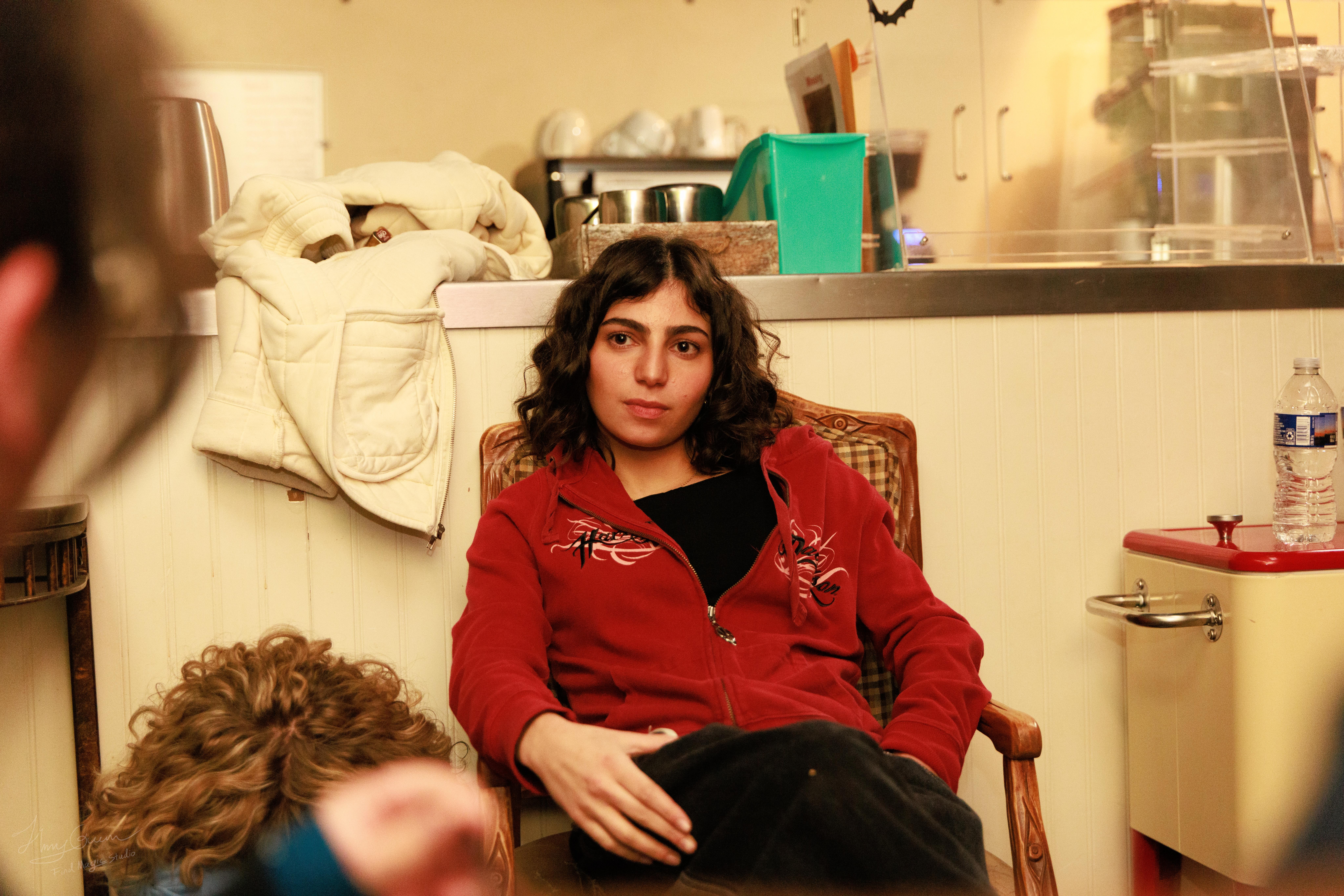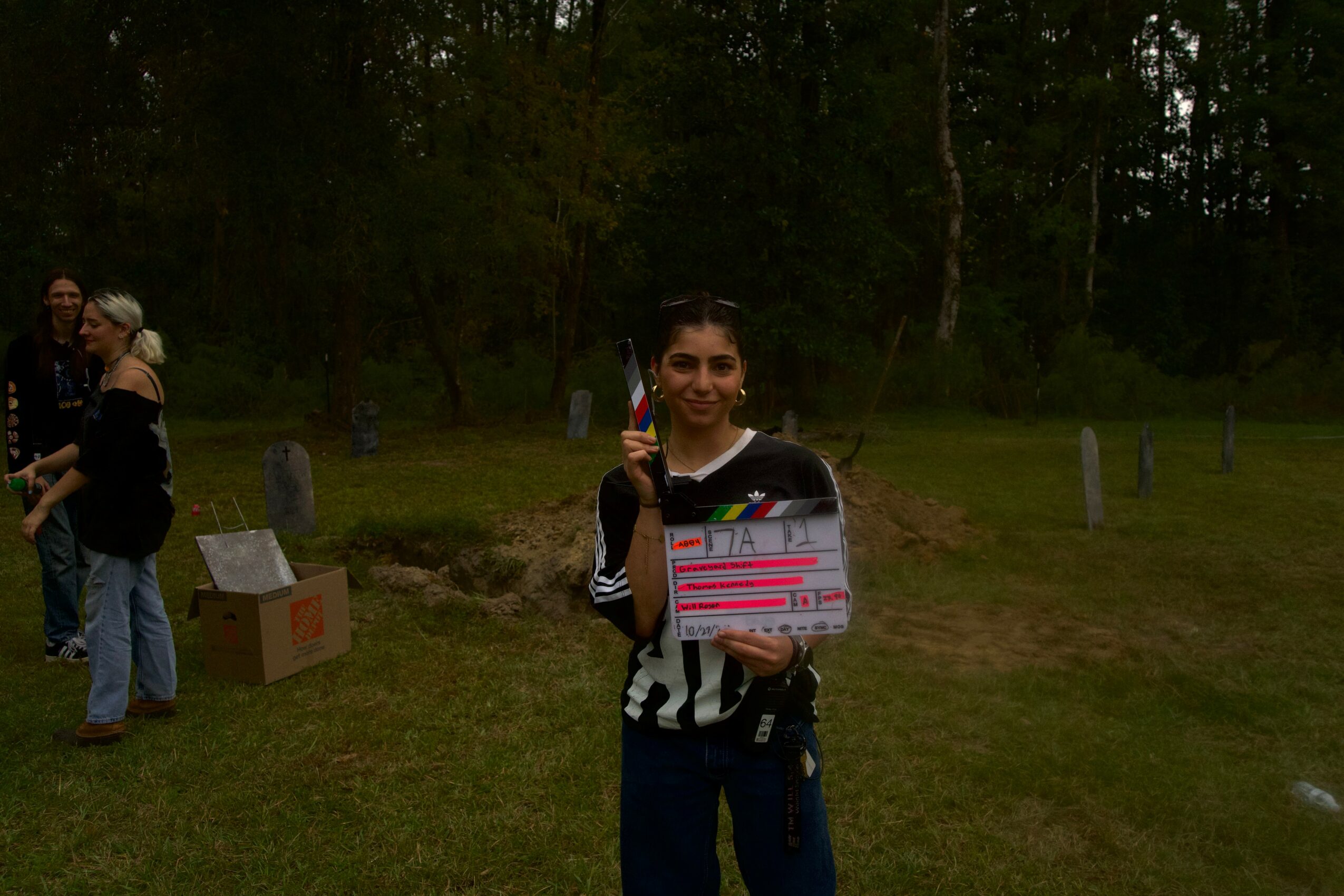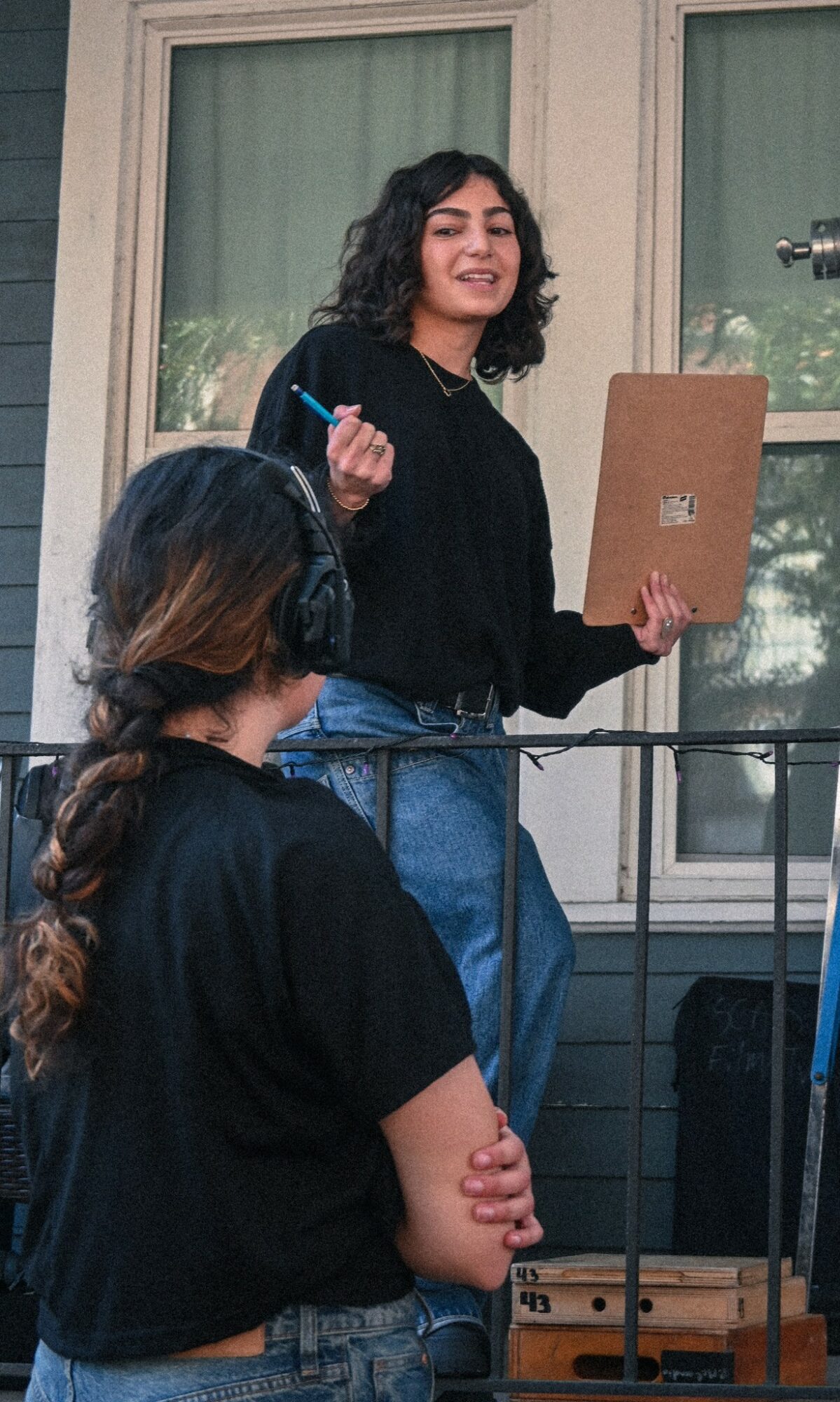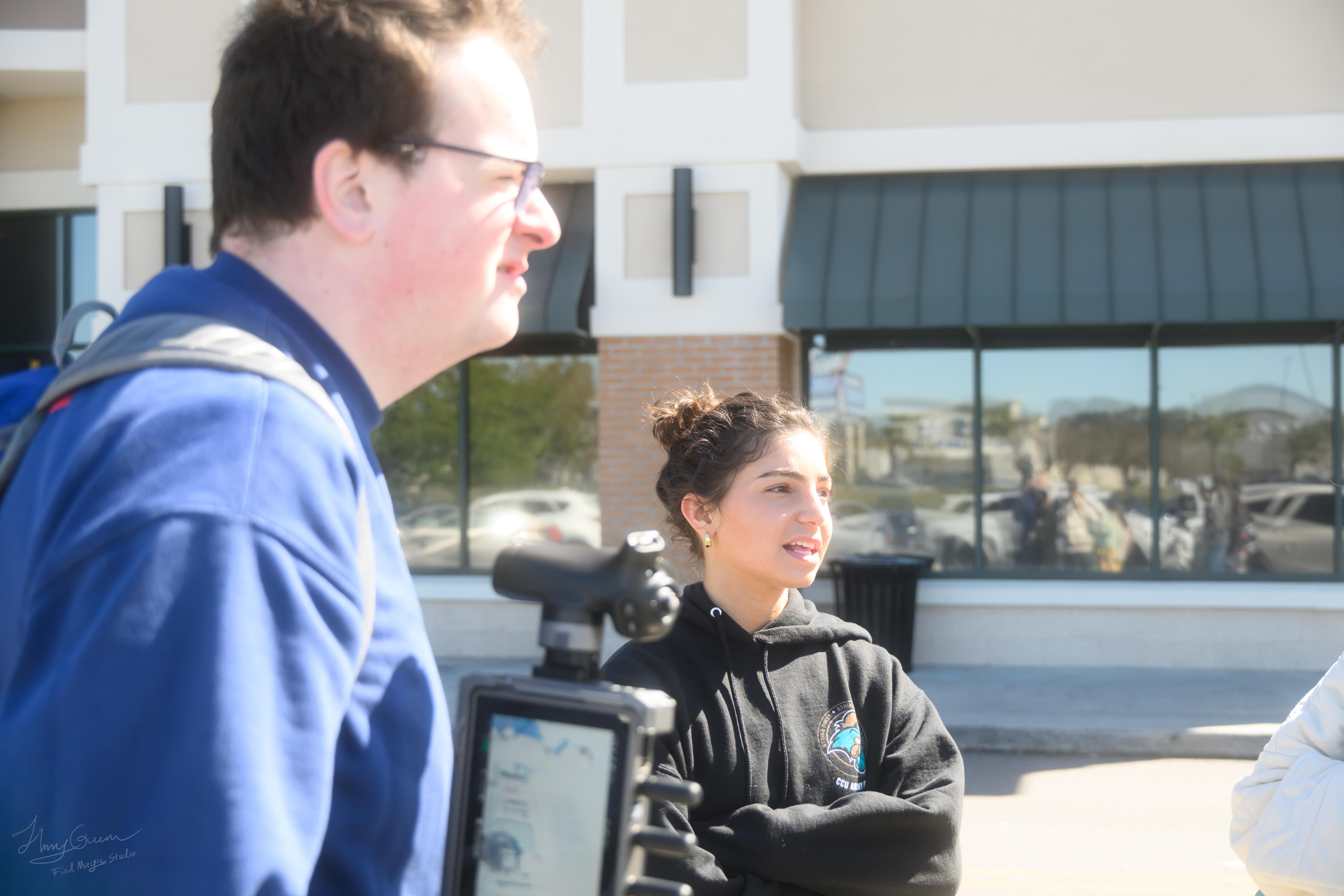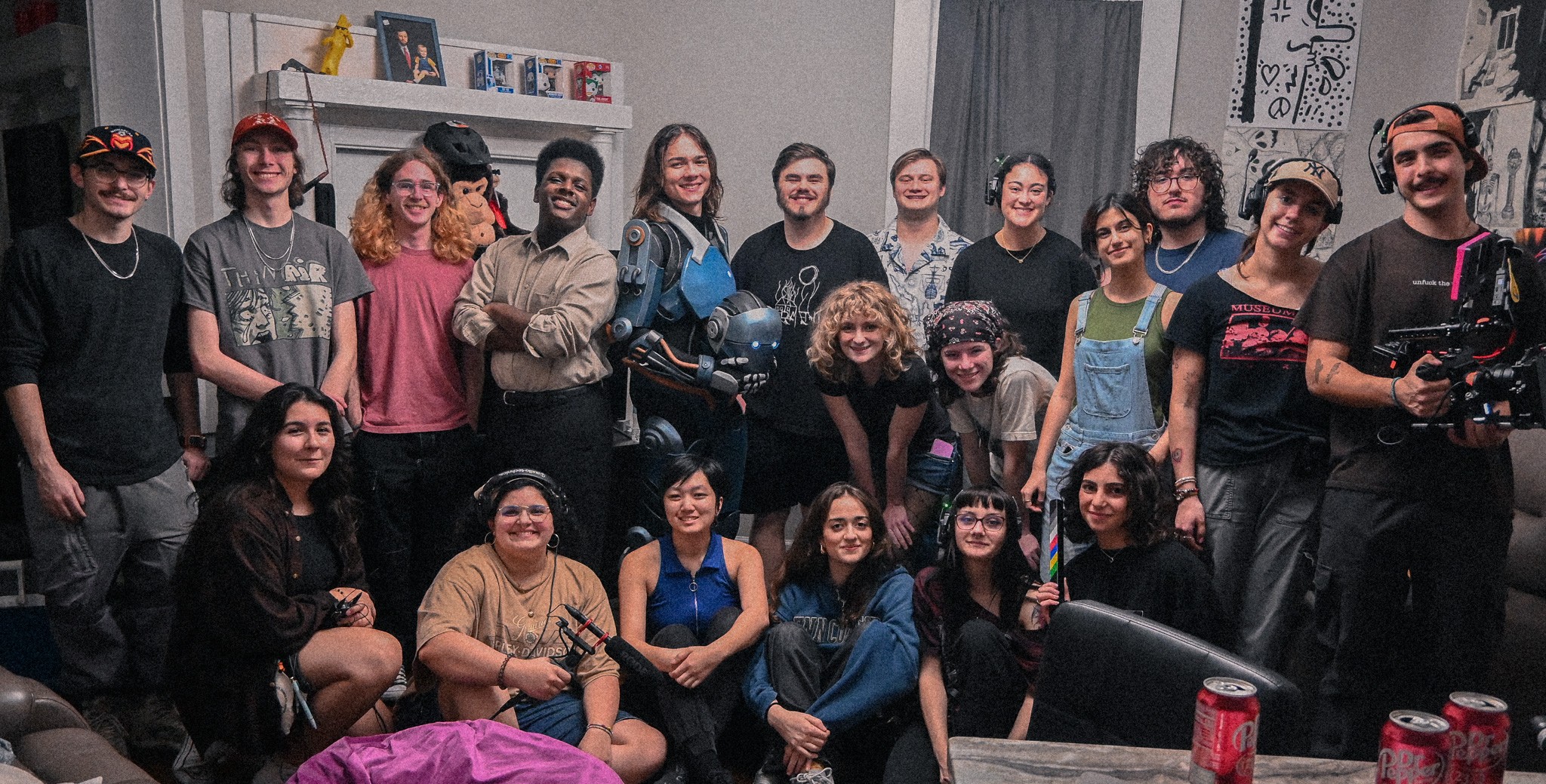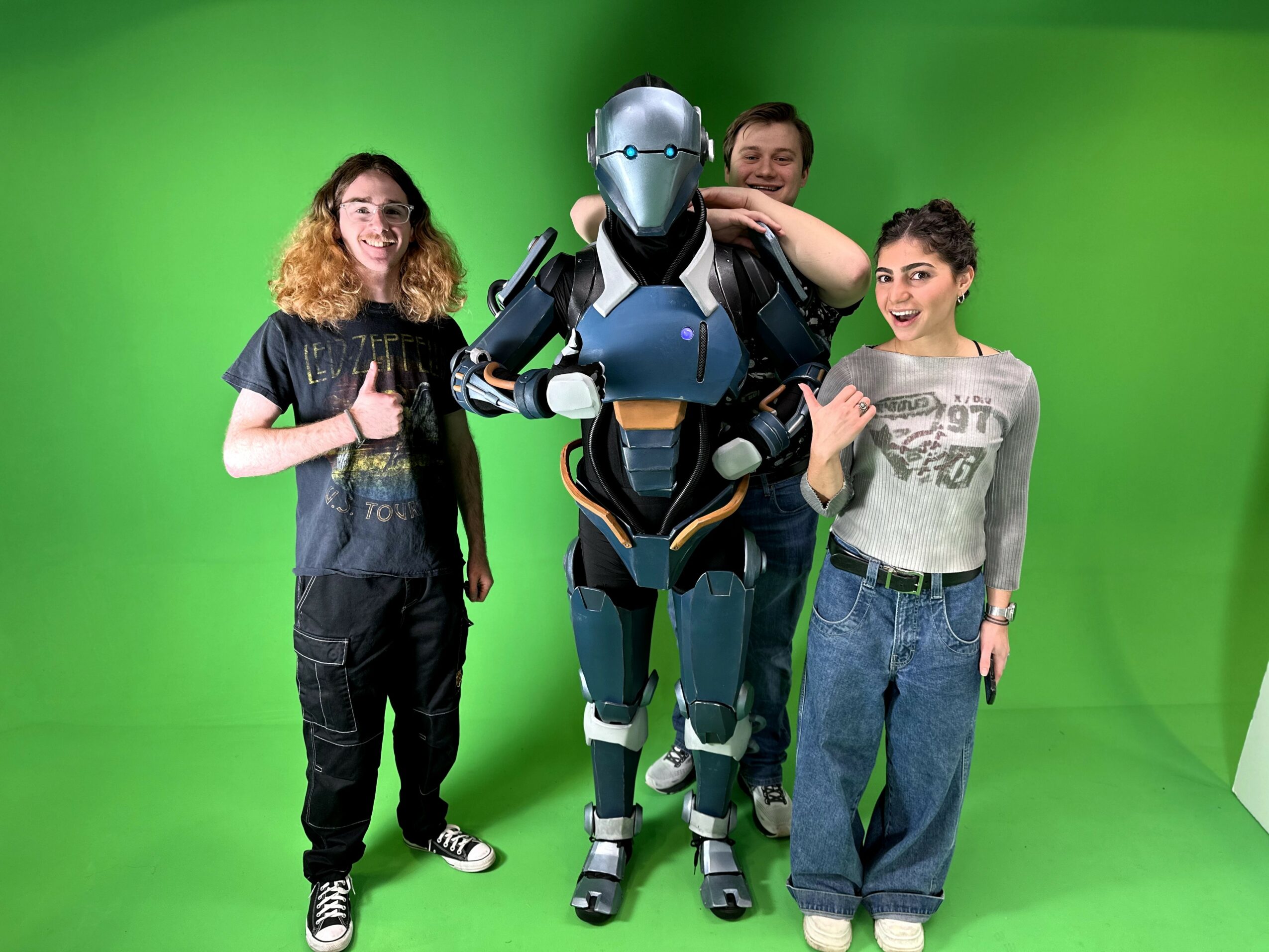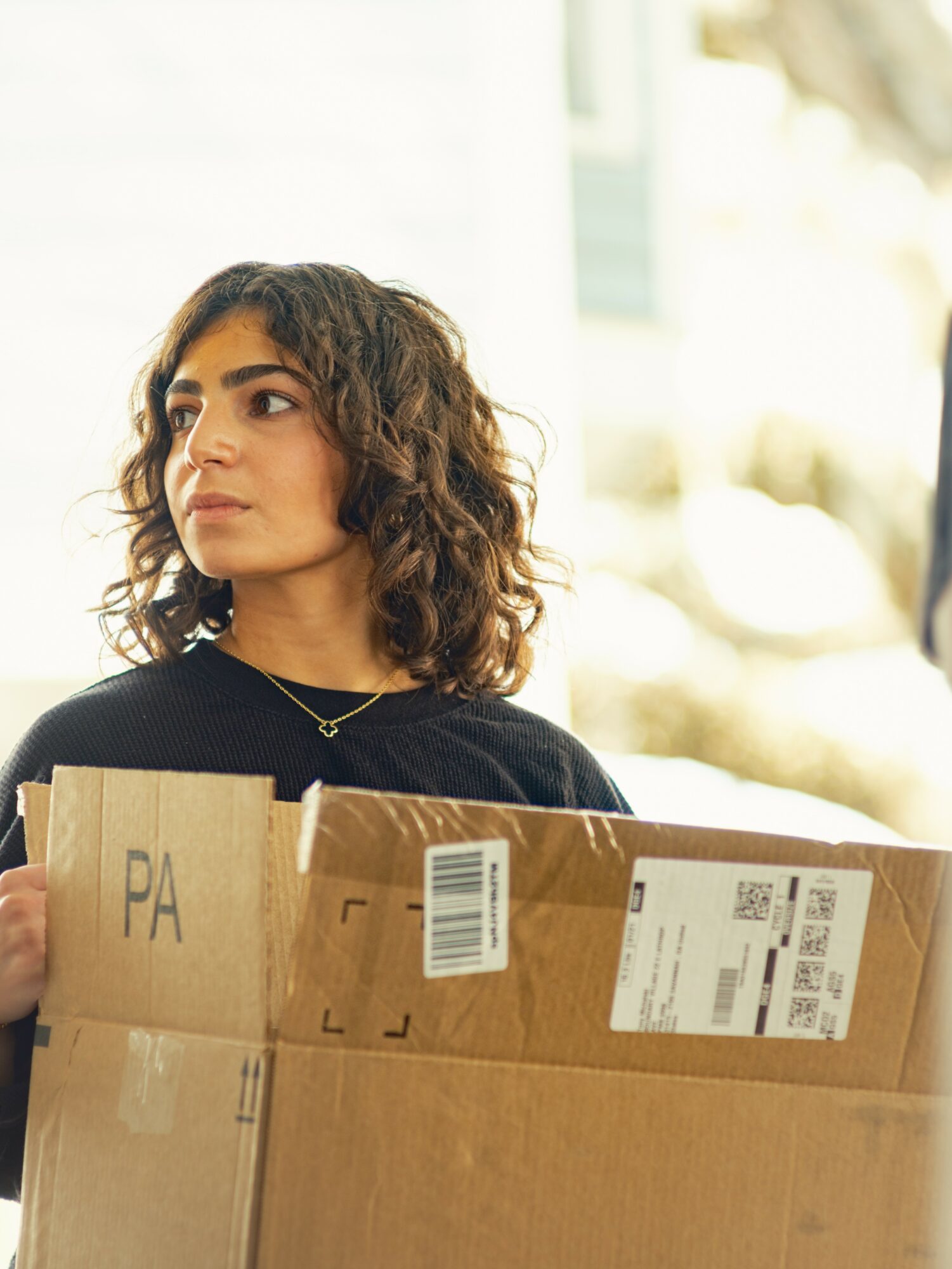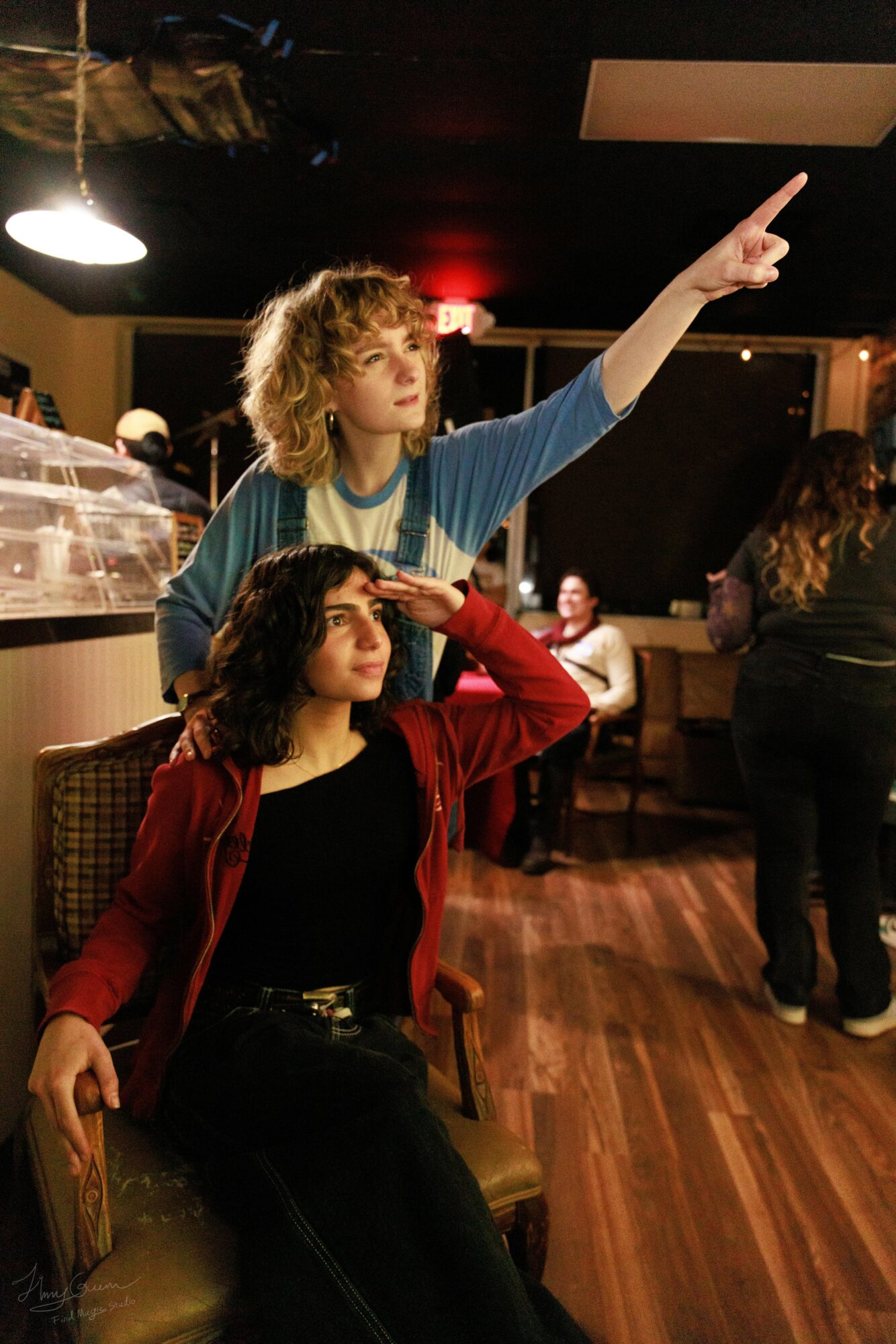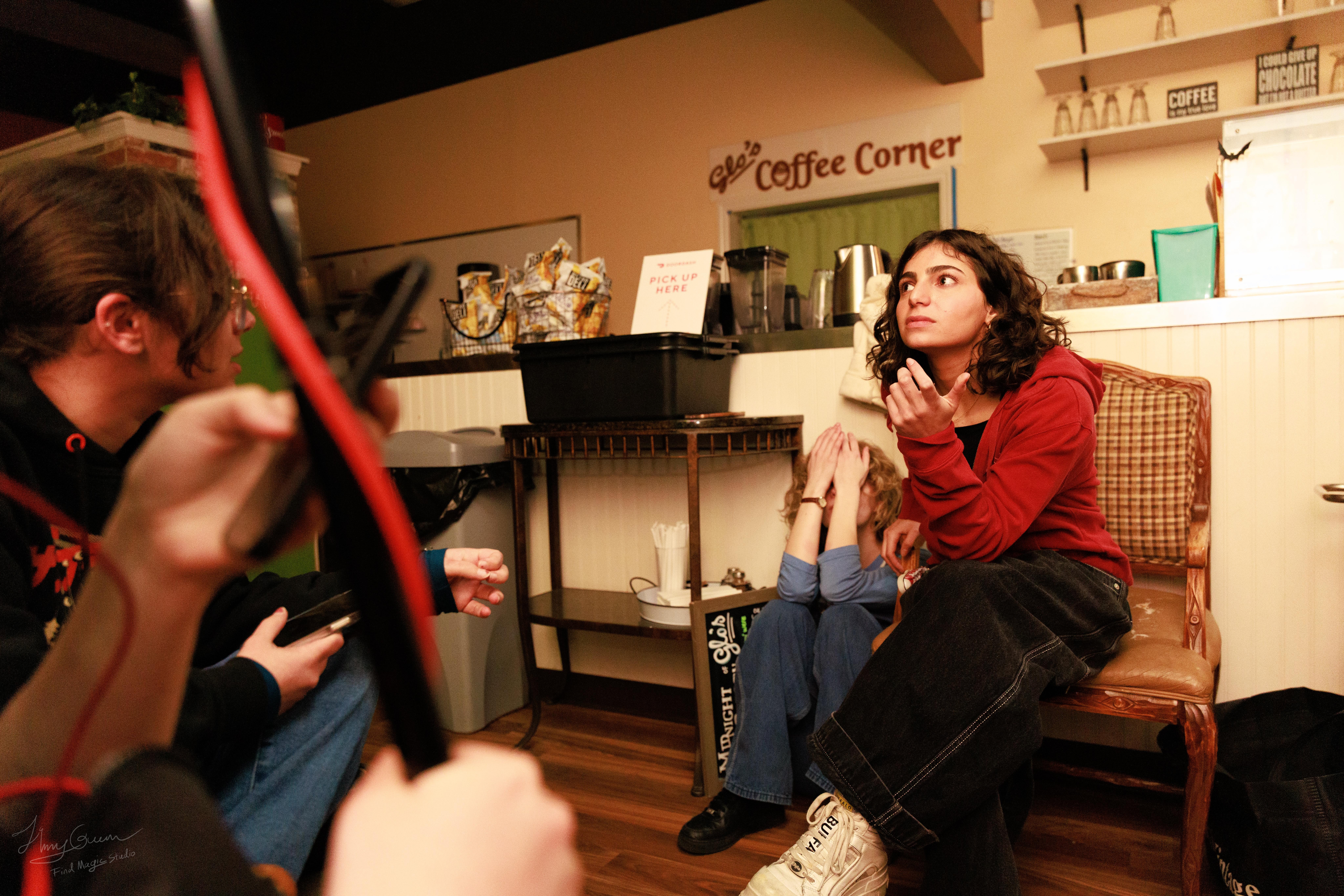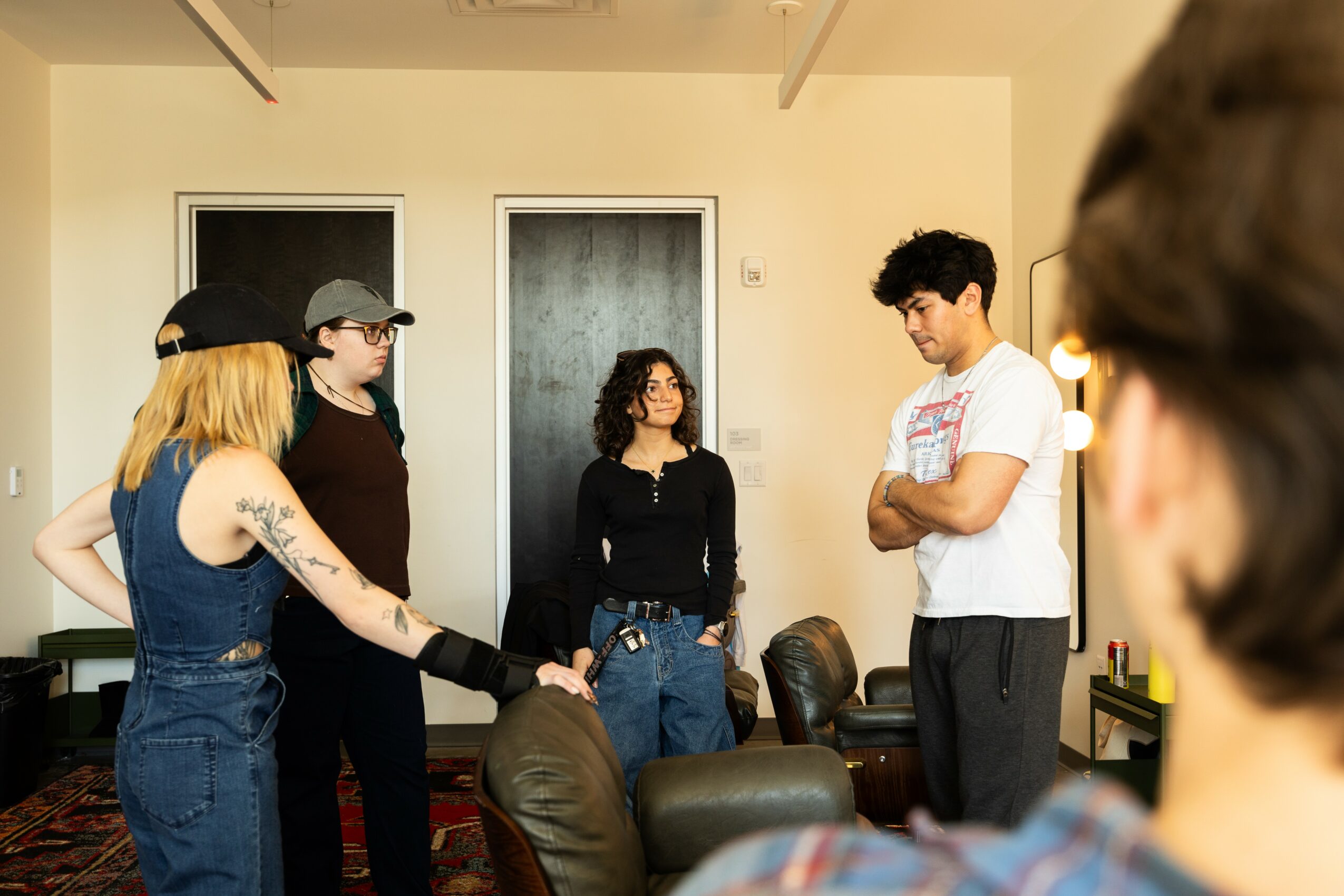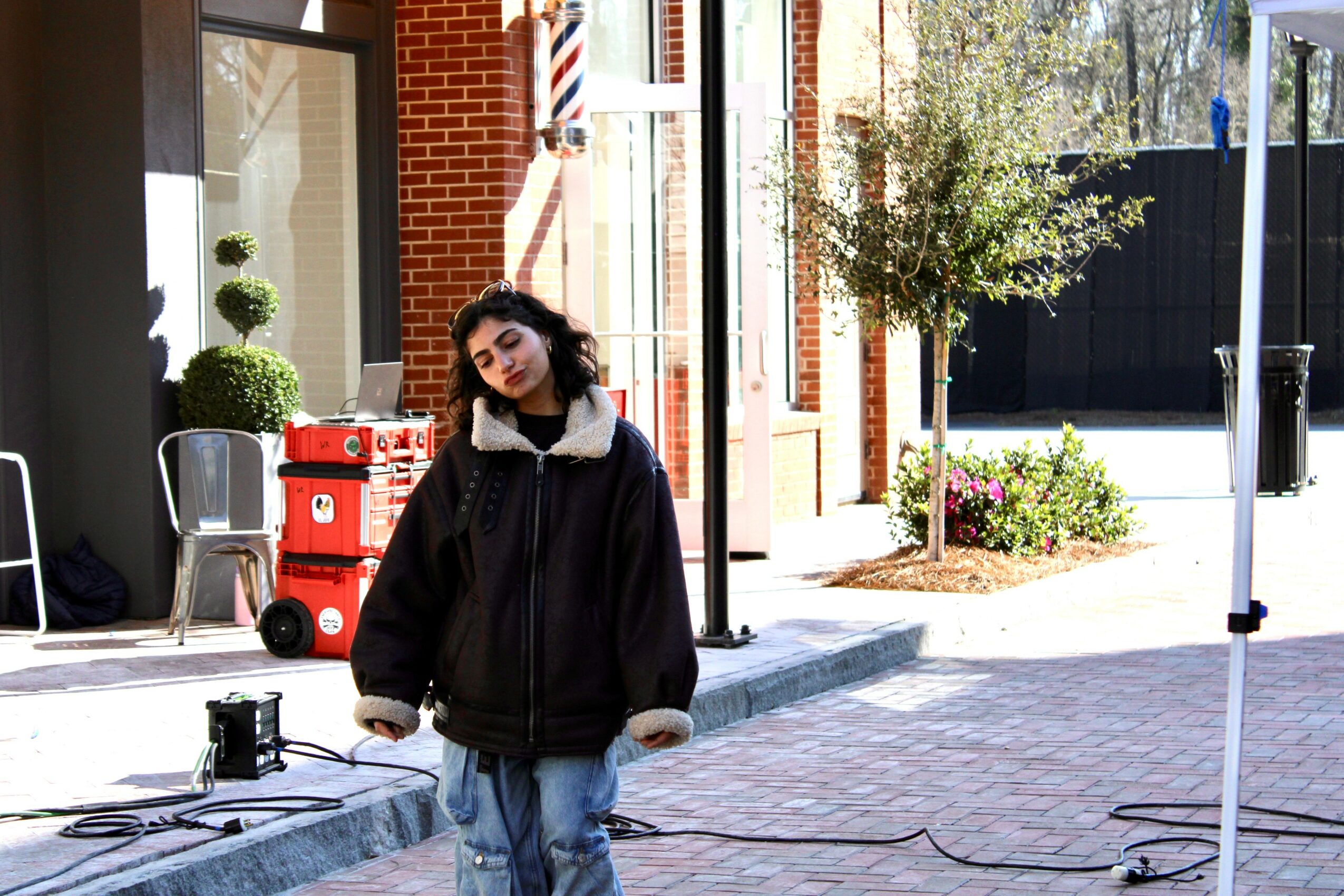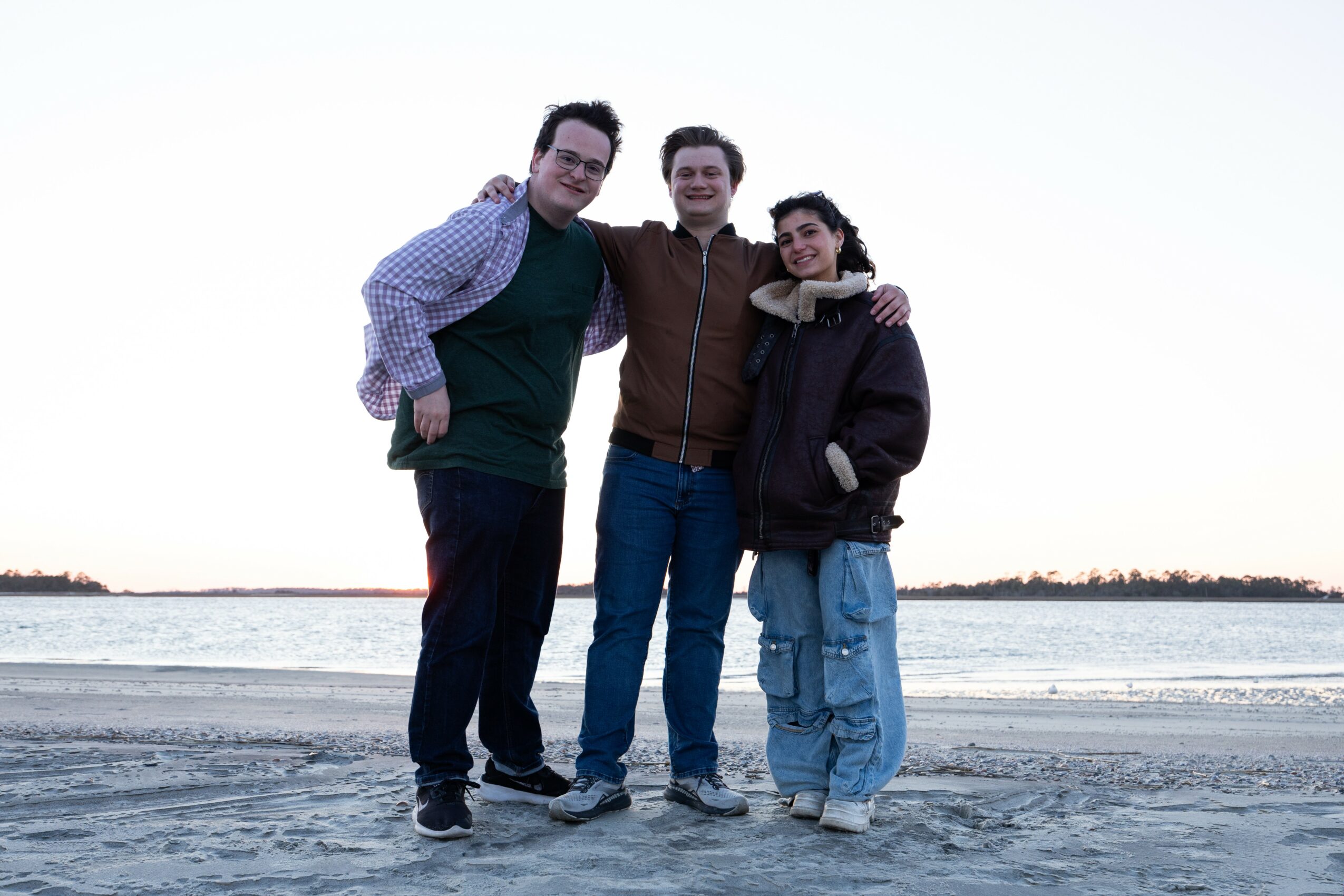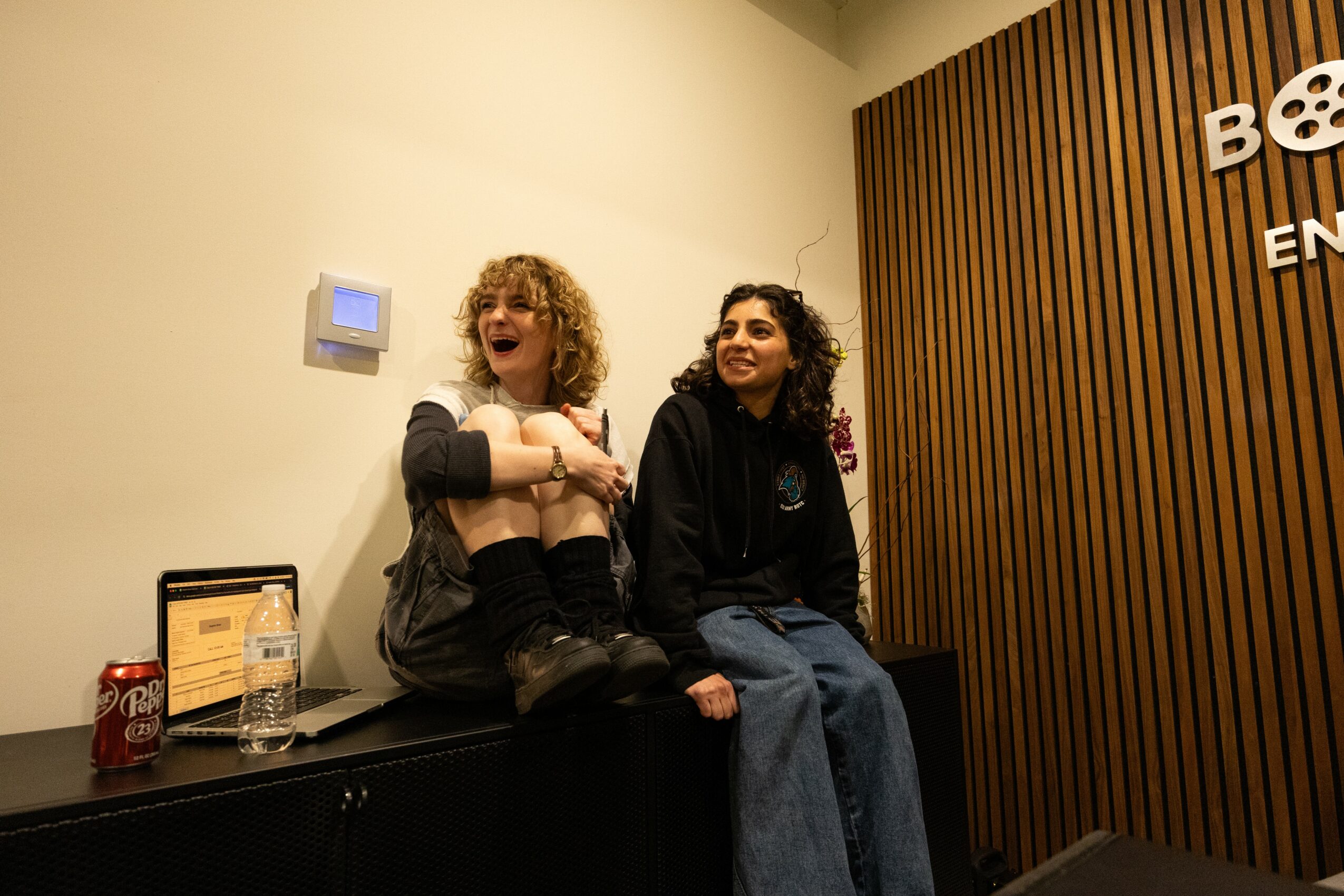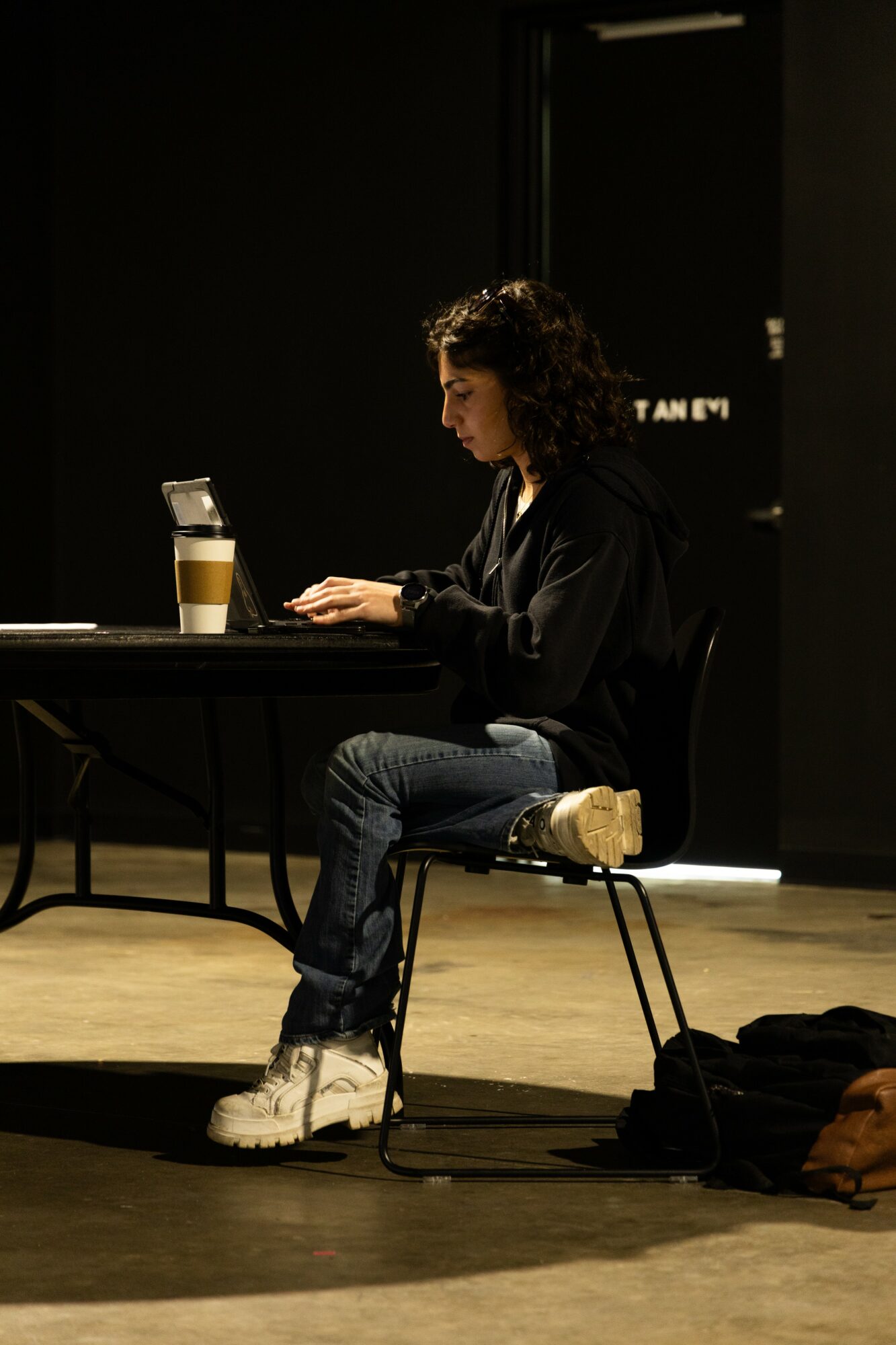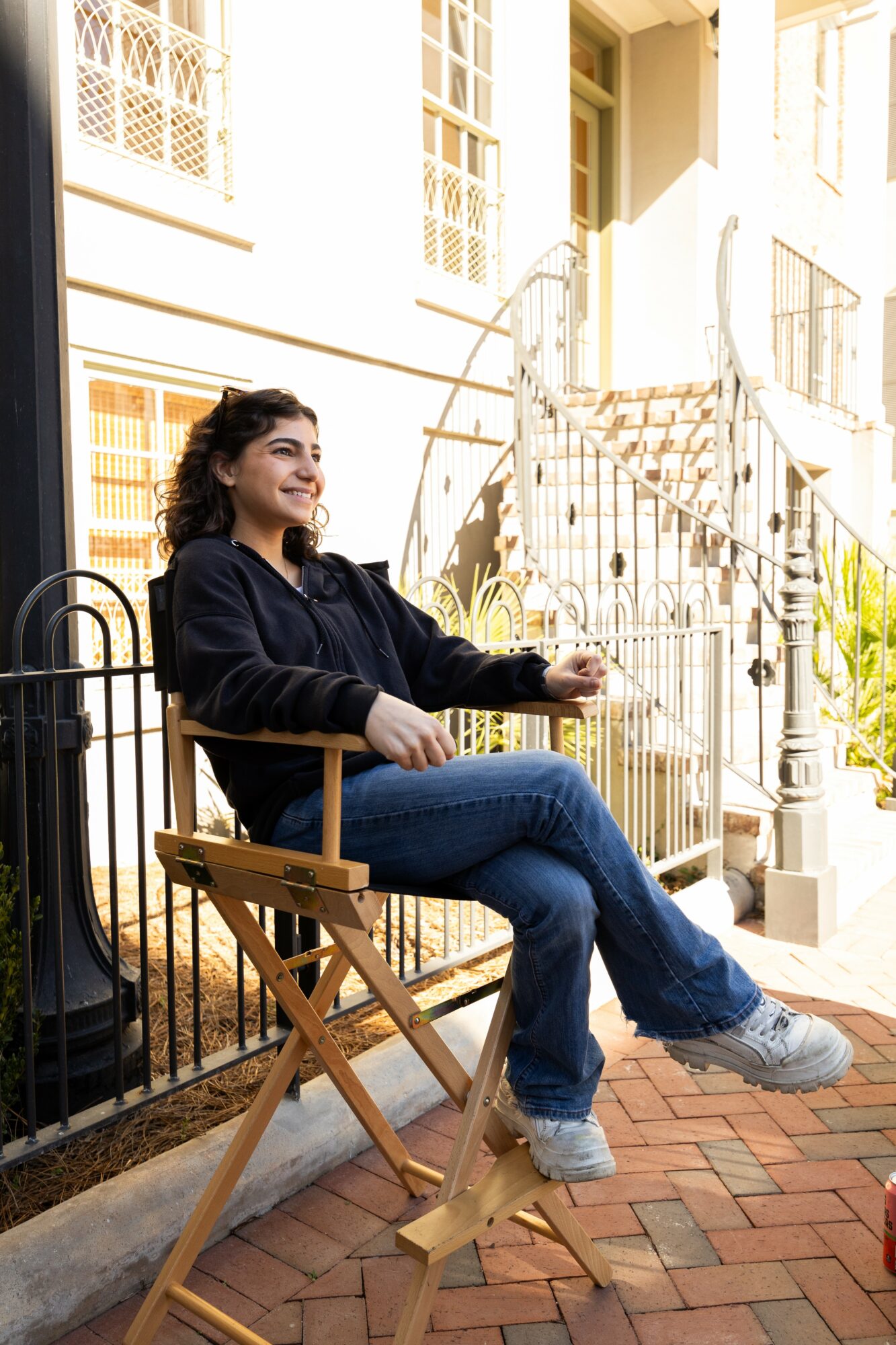

Today we’d like to introduce you to Arielle Borges
Hi Arielle, so excited to have you on the platform. So before we get into questions about your work-life, maybe you can bring our readers up to speed on your story and how you got to where you are today?
When I first arrived at SCAD, I envisioned my path in film focusing primarily on post-production. As a freshman, I immersed myself in editing, working on multiple student films, including a senior thesis titled Paint. However, everything changed when I took Introduction to Pre-Production (FILM 115) with Professor Christopher Donahue, a seasoned industry producer. Through his class, I discovered the vital role of a producer, and I quickly fell in love with the pre-production process, taking an idea and transforming it into a fully realized film. That realization reshaped my trajectory at SCAD, shifting my focus entirely to producing.
My confidence in filmmaking didn’t begin at SCAD. In high school, where most students pursued STEM, I carved out my own space in storytelling, creating three award-winning documentaries (one a PSA). Without formal resources or a dedicated film program, I took on every role, writing, directing, editing, and producing, to bring these projects to life. These films won nationwide festivals and, more importantly, solidified my belief that I could make a career in film. The experience of executing these projects independently prepared me to step into college with the drive to take initiative and build productions from the ground up.
The first film I produced at SCAD was Graveyard Shift, a senior Directing the Narrative project. Though I was brought on late in pre-production, I swiftly organized the team, secured locations, and managed casting through Backstage, as we needed older actors who weren’t SCAD students. My ability to execute quickly and efficiently left a lasting impression on the senior team, and as a result, the director recruited me to produce his senior thesis, Reckoning. This ambitious project, filming in Spring 2025, will take place on a boat in Gloucester, Massachusetts. And we will be filming on two different boats! Currently, I am deep in pre-production, working to secure a suitable vessel and sourcing crew from the Boston area to minimize travel costs for SCAD students.
Another major production I am currently working on is A La Folie, directed by Ayman Ajaney, a filmmaker from my year with whom I have formed a strong producer-director partnership. This passion project, set to film in Fall 2025, is a massive undertaking. As a period piece set in the 1800s, it demands extensive work in production design and cinematography. Ayman’s vision involves primarily Steadicam shots, requiring intensive camera rehearsals. The scale of this production underscores the technical resources SCAD offers, an extensive equipment rental program, XR stages, studios, and a backlot. However, these resources necessitate a well-structured pre-production phase to recruit the right, experienced team.
Beyond these major productions, I recently completed producing Max Needs to Pay Rent, a senior thesis comedy about an AI-powered robot helping its creator pay rent through odd jobs. My key responsibility was securing all five locations, ensuring they were both budget-friendly and aesthetically aligned with the film’s vision. Location scouting has become one of my specialties; I excel at negotiating with businesses to accommodate filming while ensuring mutual respect between the production and the location owners. The response to Max Needs to Pay Rent was overwhelmingly positive, with many praising it as one of the most well-planned student films they had worked on.
Currently, I am producing another senior thesis, Dolphin Diver, another comedic film akin to Max Needs to Pay Rent, set to shoot in February 2025. This project is particularly challenging due to its extensive costume requirements and large cast. A significant portion of my work involves coordinating wardrobe logistics and maintaining communication with a sizable ensemble, including extras. The film will be shot on SCAD’s backlot, utilizing its expansive set resources.
In addition to my primary projects, I frequently assist fellow filmmakers by leveraging my network and past location connections. Recently, I was recruited to co-produce Execute, produced by my friend Raghav, after his previous producer dropped out. Filming in May 2025, this project requires meticulous coordination, and I was brought on because of my reputation for getting things done efficiently.
Beyond logistics, I deeply enjoy the creative aspects of production. I thrive in the early stages of pre-production, collaborating with directors and writers to refine scripts and ensure the strongest possible storytelling foundation. I also relish working with various departments, particularly production design, to tackle creative problem-solving. For A La Folie, we needed a realistic dead deer prop. After months of researching taxidermy options and fabrication techniques, I discovered a prop used in a recent Amazon Prime/Sony TV show filmed in Savannah. Through my internship with Bowen Schmidt Entertainment Attorneys, I attended an industry screening, spotted the prop, and networked with the Savannah Film Alliance to track down the prop director. We ultimately secured the deer at a fraction of the cost of building one from scratch, a huge relief for the production design team.
Through my journey at SCAD, I have evolved into an emerging producer with a passion for both the logistical and creative aspects of filmmaking. The most rewarding part of my role is collaborating with fellow filmmakers across all departments, attending production meetings, and overseeing the intricate details that bring a vision to life, on schedule and within budget. Whether it’s securing locations, assembling crews, managing budgets, or solving unforeseen challenges, I thrive on the process of transforming an idea into a tangible, fully realized film.
We all face challenges, but looking back would you describe it as a relatively smooth road?
The challenges I’ve faced throughout my filmmaking journey have evolved significantly, from working entirely alone in high school to leading large-scale productions at SCAD. In high school, where most students were focused on STEM, I was one of the only ones pursuing film. I wrote, directed, edited, and produced three award-winning documentaries (including a PSA) entirely on my own. While this experience gave me confidence, it was also isolating and at times discouraging. Without a team to collaborate with, every setback, whether it was a technical issue, scheduling conflict, or creative roadblock, fell solely on me to solve. But those experiences taught me resourcefulness, problem-solving, and perseverance, skills that have been invaluable as a producer today.
At SCAD, I faced the opposite challenge. Instead of working alone, I had to navigate the complexities of leading teams, managing large-scale productions, and coordinating multiple moving parts. Producing is full of obstacles, but every challenge brings an opportunity for creative problem-solving. A perfect example was A La Folie. We needed a realistic dead deer prop, something that should have been straightforward but ended up being a logistical nightmare. After multiple conversations with prop houses, taxidermists, and fabricators that led nowhere, I finally discovered a hidden prop house (from watching a show filmed in Savannah that used a fake deer prop) with exactly what we needed at a fair price. It was a long process, but persistence paid off.
Another recent challenge came with producing Find the One, a senior spec ad for Barnes & Noble. I was brought onto the project very late in the process, but I admired the writer/director’s vision and wanted to see it come to life. With less than three weeks before filming, I had to quickly lock locations and assemble a full crew. This was an intense logistical challenge, but I relied on my network: crew members I had worked with on previous sets and trusted referrals. Despite the tight turnaround and the fact that most of the team had never worked together before, the set felt like a family. The shoot just wrapped this past weekend, and it turned out amazing.
At the core of producing, every challenge is outweighed by the solutions and support from the team. Whether it’s scrambling to secure a crucial prop, negotiating last-minute location changes, or working with a tight deadline, I’ve learned that there’s always a way forward. Producing is about anticipating problems, finding creative solutions, and most importantly, building a team that can adapt and overcome obstacles together. No matter how difficult the process may be, seeing the final product come to life makes it all worth it.
Alright, so let’s switch gears a bit and talk business. What should we know about your work?
As a filmmaker, I focus on producing, and somehow, I’ve built a reputation as the person who gets stuff done. Since I started producing, I’ve been constantly asked to jump onto sets, and this quarter alone, I’m producing six different projects. The best part? I genuinely love it, even though most people find producing to be a logistical nightmare.
What I do is a lot of logistics, planning, troubleshooting, and making sure that a director’s vision actually makes it to the screen. It all starts when a director asks me to produce their film. I don’t just say yes to everything, I’ll read the script, talk to them about their vision, and decide if I believe in the story enough to take it on. And if I do? I’m in it 100%. If I can’t be fully committed every step of the way, I won’t do it at all.
Once I commit, my first job is locking the script with the director. This sometimes means brainstorming solutions to problem areas, refining certain moments, or figuring out how to practically execute ambitious ideas. I take the time to fully understand the director’s vision so that when I start scouting locations or hiring crew, I know exactly what to look for.
Speaking of locations, that’s where the real fun begins. Securing locations is a test of patience and persistence. Sometimes I’ll call 20+ places a day, send emails, follow up, and negotiate deals to fit the tight budgets of student films.
At the same time, I’m recruiting crew. I start with production design and costume design since they need the most prep time, and I always make sure we’re all on the same page creatively. Fundraising is another beast, I set up crowdfunding campaigns, host bake sales, and even organize events. Right now, I’m arranging a St. Patrick’s Day party with Your Space to raise money for Execute, an MFA Thesis film I’m producing. Because if people are already out celebrating, why not turn it into a fundraiser?
Meanwhile, I’m constantly checking in with the crew, making sure they have everything they need, updating budgets, and handling production paperwork. Some films, like Reckoning, which involves filming on a boat, require additional hurdles, like securing special insurance. Thankfully, my internship at Bowen Schmidt Entertainment Attorneys has given me great connections for student-friendly insurance options. For Reckoning, I’m also working on securing a fiscal sponsorship with the Ships of the Sea Museum, which means I have to know every detail about how Indiegogo fiscal sponsorships work and be ready to pitch the project in a formal presentation.
But what truly sets me apart? Communication and follow-through. I’ve heard way too many stories about producers who ghost their teams, don’t answer texts, or drop out when things get overwhelming. I refuse to be that person. I keep three calendars (yes, three), track every deadline for both my films and my SCAD coursework, and make sure I’m always available to my team. And I don’t just see a film through production, I follow it all the way to the finish line. Editing, sound design, color grading, it doesn’t matter how long it takes, I’m there. Because a film isn’t done until it’s actually finished.
At the end of the day, producing is chaos. But it’s a kind of chaos that I thrive in. It’s not easy, but nothing worth doing ever is. And when I see a film finally come together after months of work, knowing that I helped bring it to life, that makes every late-night email, stressful phone call, and spreadsheet worth it.
We all have a different way of looking at and defining success. How do you define success?
For me, success isn’t just finishing a film, it’s about the people and the process. If a director or crew member wants to work with me again, that’s success. Filmmaking is a team sport, and strong connections matter just as much as the final product.
It’s also in the small wins, finding the perfect location after 20 dead-end calls, solving last-minute problems, or seeing a crew bond over a late-night meeting. I have 10 of those meetings a week, and they’re my favorite part.
At the end of the day, the work itself is the success. I love every step, even the frustrating ones. If I’m challenged, surrounded by great people, and making things happen, I’ve already won.
Contact Info:
- Website: https://arielleborgesfilms.com/
- Instagram: https://www.instagram.com/_arielle.borges_/
- LinkedIn: https://www.linkedin.com/in/arielle-borges-7337a7218/
- Youtube: https://www.youtube.com/@arielleborgesfilms
